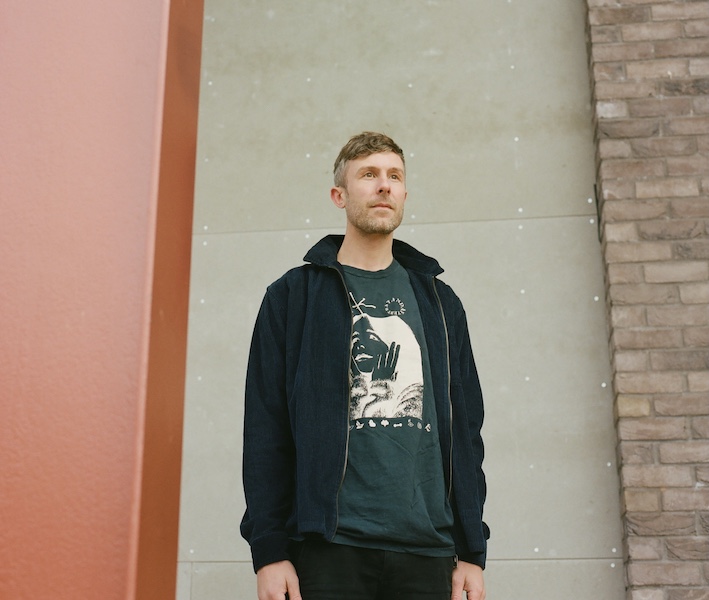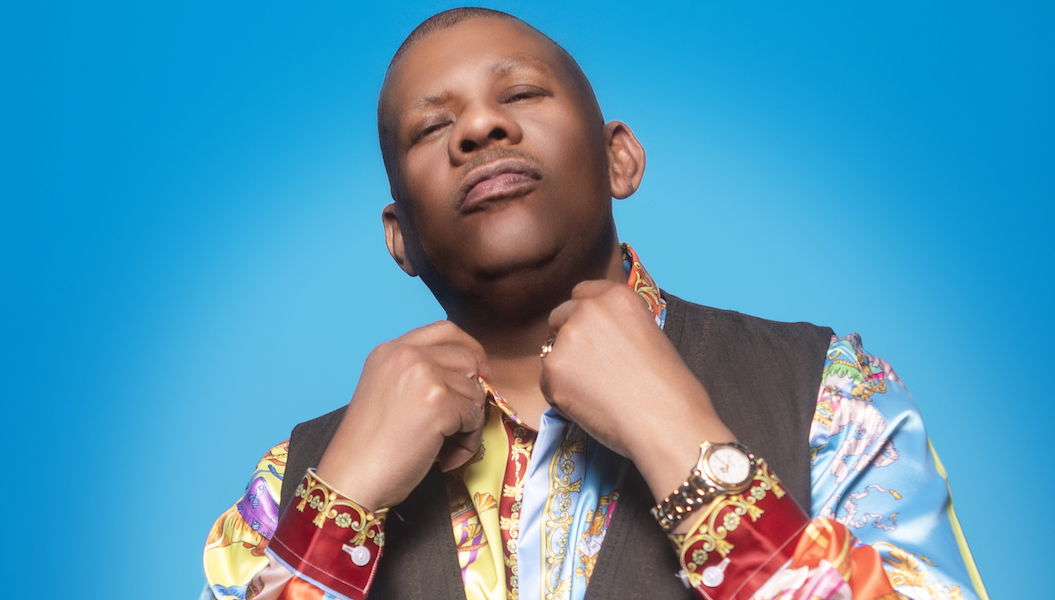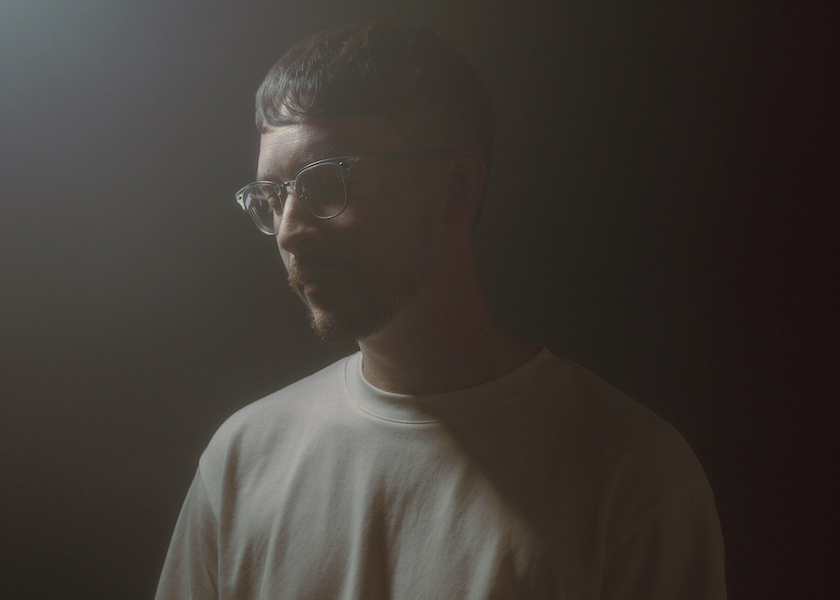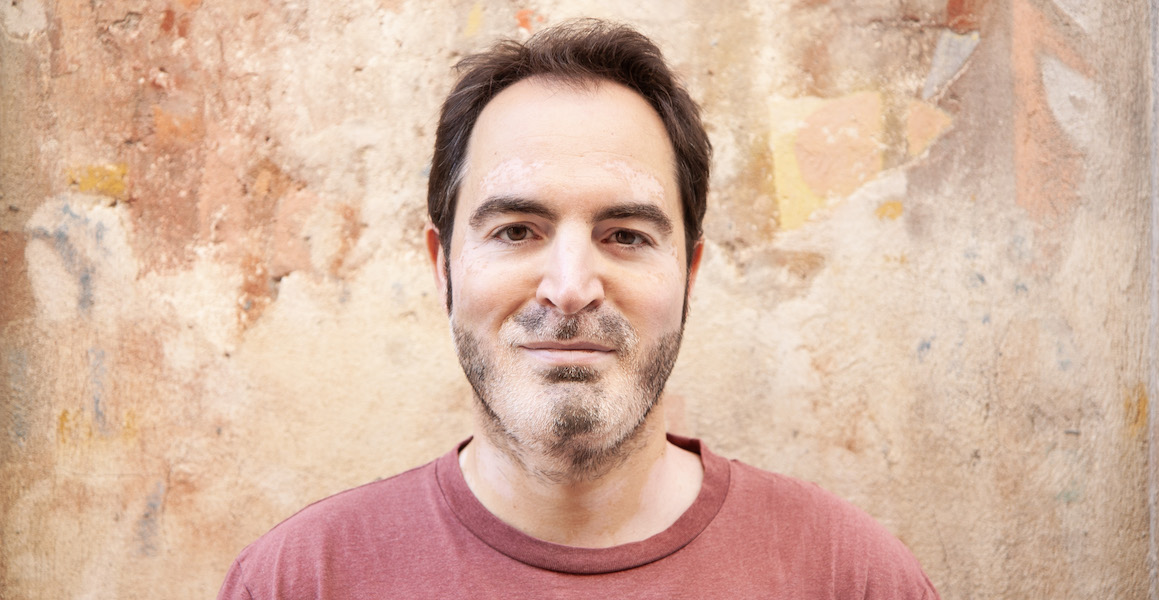Forward-thinking music producer and DJ, Joseph Ashworth, releases his second album Stay on his brand-new imprint Sound Of Outside. ‘Stay’ is a dynamic album with influences spanning from Acid House (Fearless), to Italo Disco (Pepper), to 90s Warp Records (Loved You). On Stay, Joseph Ashworth presents a focused and considered body of work that displays a wealth of growth from his last full-length release Grain, released in 2015.
The original intention wasn’t to record a full-length album. An opportunity arose to create an AI project (AIMI) where elements of his unreleased work would be re-interpreted by machine learning to generate an ever-evolving music experience. This inspired Joseph to bring together years’ worth of music for listeners interested in the cutting edge of technology, but also reminded Joseph of his love of the traditional ‘album’ format. So throughout 2021, and with less travel, Joseph created 10 tracks and meticulously edited and arranged them into a fluid, engaging listening experience.
Joseph comments, ‘Stay is the connection of ten tracks I started over the past five years. Time and patience were key in the recording process, with an aim to make each track as unique and emotionally vivid as possible’.
The first track Kings, revolves around melancholy piano chords, propped up by crisp percussion and rich swells of string and synth pads – it outlines the album’s ambitious level of experimentation from the get-go. Then there’s the disco-tinged and synth-laden Fearless, while Carbonated leans towards techno; a flowing staccato synth line and a swampy, deep bass, which offers a stark contrast to the beautiful stripped back ambient track that follows, Dressed Up.
The first single to be released from the LP, Pepper breaches full club-pumper territory, with an Italo-esque synth lead, chunky, forceful kicks and a chugging bassline. Loved You features metallic chords and an alien vocal that guides the listener through a rich sonic landscape and is reminiscent of the works of Aphex Twin and Squarepusher. It’s another landmark long player from one of electronic music’s most interesting talents.
‘Stay’ takes the listener on a deep and stimulating journey, and although each of the tracks could hold their own as individuals, the album as a whole is lovingly crafted, expertly sequenced and could only be achieved by an artist with a true passion for their music.
To celebrate the release, we asked Joseph Ashworth to gives us his Top 5 studio tips for all the producer reading When We Dip. He starts by saying: “Note – being amongst other things a mix engineer, everyone always asks me mixdown-related stuff, so I’m going to avoid that entirely”.
1. Workflow is crucial
Do anything you can to streamline your process. Creative inspiration and enthusiasm usually hangs on a knife-edge. If you have an idea and spend half an hour opening a project, working out how to send midi to your synth, trying to figure out why you have a hiss on the recording etc, then you’ll lose the idea and the inspiration. Being efficient and well-organised also opens you to more nice-sounding accidents that you can develop. Make sure everything is set up as efficiently as possible, use (and learn, like learning a language) keyboard shortcuts for everything, use a really good project template (with group busses, commonly used FX chains on the buses, and master (but bypassed until you need them), and keep tweaking it over time).
2. Learn an instrument
A lot of producers get by without this, but learning to play piano/keys, or guitar, or even percussion will give you a knowledge of music that will feedback into everything you do. Being able to freely play around with chords allows so much musical depth but also sensitivity and wisdom (rather than musicality essentially being an obstacle to achieving what you want). Something I’ve heard before is that people worry that too much musical knowledge, or skill on an instrument can lead to music losing its raw edge and becoming showy and noodley. Total bollocks! The abstract impressionists could all paint well, John Cage is a fantastic pianist etc, etc! Knowing about something and having a skill gives you the choice to use or not use it. If you decide you need a 3 minute piano solo on every track, the problem lies in your decision-making, not the fact you can play the piano!
3. Analyse music you love
Not just in the genre that you’re working in, but all music. Think not only about the track itself, but find out who the producer was, what was used, who wrote the song, where it was recorded, quirks about the recording process. Recorded music is fascinating, and it’s easy to accept the finished project as something beamed down to earth in its finished form, but when you start taking an interest in the process, you find a whole new layer of appreciation for music as an art form, and that’s a massively inspiring to bring into your own recording process.
4. Collaborate and talk about music to people
Find interesting people to work with, collaborate with, and appreciate music together with. A lot of people make music in isolation, especially in house and techno, which is great, but at some point you’ll develop habits that aren’t necessarily useful to you, which will go unchallenged. One of my favourite things about collaborating with people is having to justify a decision verbally, and to argue a case for something. Sometimes you just like something because you like it, and that’s fine, but it’s such a valuable exercise to acknowledge this, and you’ll also learn communication skills that will benefit you outside of music.
5. Save a new project file at the start of each session.
From the (hopefully) inspiring to the mundane. If there’s one thing that’s screwed me over in the past it’s wanting to go back to a version only to find I’d saved over it. Make a habit of before you even open a project, copy, paste, give it a new number, and start work.






